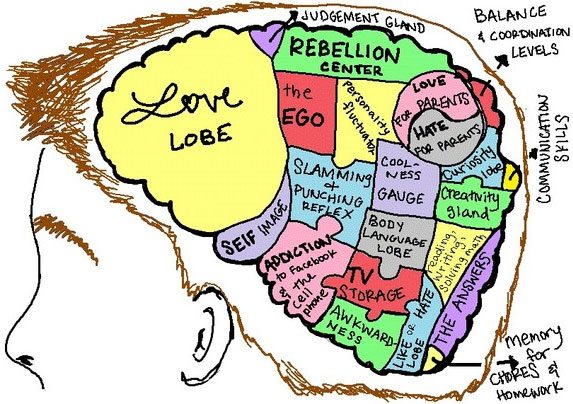7 memorization skills that help you have intelligence
Learning ability is one of the very important skills of people. Peter Brown, Henry Roediger and Mark McDaniel - the author of the book "Science of Learning" wrote: "We need to learn and remember constantly everything in our lives. To work better than others, you need to master your working skills. And if you are a good learner, you will have many advantages in your progress. "
"Learning" something means you have to remember it. But most of the things we learn in school don't help much for long-term memorization. Learning will be much more sustainable if it takes effort and effort.
Here are a few tips to help you train your long-term memory, making you smarter.
1. Restore memories

When you try to recall an idea, a method or a concept in the past, that means you are recovering your memories.
The "note cards" that record information, pasted in many corners, will make you "search" for ideas that have appeared in your mind, thereby carving deeper into the brain.
The reason for this "memory recovery" method is effective because it relies on the combination of the power of neurons and the idea already available in the human brain.
2. Connect new concepts to what's already available

If you can relate what you have just learned with previous knowledge, you will find yourself remembering that new lesson much faster and much longer.
Because trying to express a new concept in your own mind means you are connecting them with knowledge that exists in the brain.
Suppose, you are learning a physical lesson about the heat conduction process, try to connect it with practical experiences. You imagine how a hot cup of coffee can heat the hand. You will find it surprisingly effective.
3. Diversify and integrate specific examples

In case you try to understand a certain topic (from basic knowledge of economics to how to conduct electricity from one object to another), try visualizing and incorporating specific examples together. From there draw a common experience for yourself about the problem being studied.
The process of integrating specific examples is useful because when living outside the natural world, the first thing we need to do is to identify the hazards we will face, then find a way to solve. problem solving.
4. Answer the question yourself before looking at the answer

By thinking about yourself trying to answer questions without relying on the available answers, we will learn and memorize that solution a lot longer.
Before going to class, you should take some time to find the answer in the lesson and then let the teachers answer the problem.
In the work environment, before presenting ideas before your superiors, you should fully prepare the arguments and information to answer any questions you may encounter. Thus, you will have much higher learning and working efficiency than passively accepting methods of solving problems from others.
5. Evaluate what happened

After each meeting or project, you should take some time to review, re-evaluate what you / or others have done. You may ask yourself a few questions such as: What has been done well? What do I need to improve? The event just reminded me what?
Writing your assessment will work better than just thinking in your head. Just 15 minutes at the end of the day, a summary of what happened will increase the working efficiency of a working group by 23%.
6. For ease of memorization, use abbreviations and images

Thinking about the first letters of a word or thinking about images related to it makes it easier to remember it. This method helps you transform information into the form that the brain easily stores, thereby improving your long-term memory.
In addition to the abbreviations and images, the format of a short poem, rhyming words, a simple rhythmic rhythm or body movement can also help us remember longer.
7. "Know" what you don't know

When someone tells you things that you have not realized yourself, remember it deeply. We need to learn to use objective factors to remove our illusions and adjust our personal views in a better way (more realistic).
We all have "illusions of awareness" : You think you understand something very well, but the reality is that you don't understand anything.
So ask yourself a question or collect the comments of the people around you, which will help us identify our own blind spots.
- Google's artificial intelligence has more rapid learning skills
- 'Google effect'
- 10 skills 'wish' we are taught at school
- Congratulations to the designers, the people who are doing the job are hard to rob the robbery
- Agent CIA instructs the skills to get rid of zip straps
- There are 8 types of intelligence and everyone owns at least 2 types
- Super-fast recipes for new skills have been revealed by science
- Admire the supernatural skills of people
- How does the spy of MI-6 British intelligence agency train memory?
- Pocket immediately these 5 skills to prevent any uncertainties
- Under these 5 vital skills, you may not be hungry, thirsty, cold and drowned!
- Does IQ not measure intelligence?
 'Fine laughs' - Scary and painful torture in ancient times
'Fine laughs' - Scary and painful torture in ancient times The sequence of numbers 142857 of the Egyptian pyramids is known as the strangest number in the world - Why?
The sequence of numbers 142857 of the Egyptian pyramids is known as the strangest number in the world - Why? History of the iron
History of the iron What is alum?
What is alum?